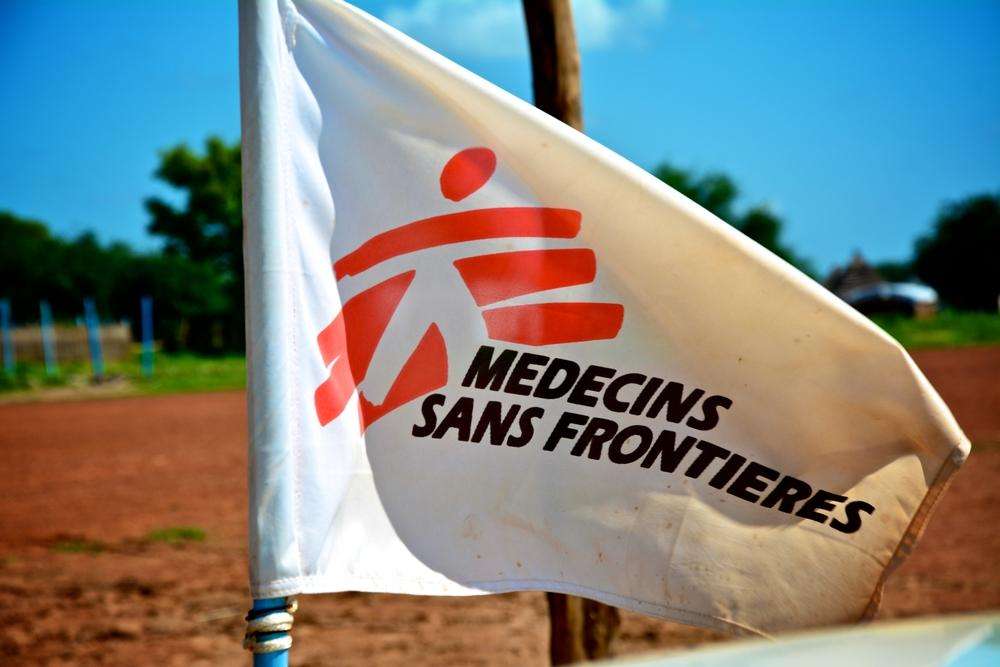On the night of Sunday, February 25, a female doctor who manages a field hospital in besieged eastern Ghouta that has received medical supplies, financial support, and technical medical advice and training from Doctors Without Borders/Médecins Sans Frontières (MSF) since 2013 recorded her thoughts about the current situation she and her colleagues are facing. Both her name and the location of the medical facility have been withheld to protect her safety.
We receive war trauma-related wounded almost every day. Wounded are from all classes of society; the vast majority of the wounded we receive are civilians: children, women, and men. Our main work is to rescue these wounded to the best of our capacity, because we have been under siege for more than five years and our capacities are very limited. In spite of that, we are, to my view, doing a good job, saving a lot of lives within our capacities.
The main challenge we are facing is the constant bombing and constant strikes; it increases the number of wounded, which exhausts the medical staff, drains medical material available, [and] reduces the level of drugs available. It’s difficult to move—ambulances’ movements are hampered, even people’s movement becomes very difficult. In addition, the siege restricts the entry of medical items into eastern Ghouta. Several items are missing in our stocks, and we cannot provide them.
Restricted Movements
Influxes of wounded were high, numbers of dead were high, [and] the majority of the war-related injuries were severe: amputations, head injuries, poly-trauma. We faced a lot of difficulties in moving because of the constant strikes. There was no pause in the bombing that would allow us to refer patients, and our teams had difficulties in rescuing people from under the rubble to take them to the hospital.
We face difficulties in transferring patients to the intensive care unit or other rarely available specialties like neurologists [or] vascular surgeons. This has caused dramatic deteriorations in the situation of several patients and there were several deaths. To be honest with you, the past week has been catastrophic for us medical staff: our capacity and stocks have been drained, considering the fact that we have been besieged for the past five years and that medical supplies could not enter eastern Ghouta.
“The Medical Staff is Exhausted”
The constant bombing has not stopped day or night for a full week. The medical staff is exhausted. We have barely slept in days; only a few hours in the past days, and of course in shifts. The majority of the staff had to stay awake and take shifts due to the high number of casualties and the continuous influx of injured.
There is barely any food left for the medical staff. The aspects of daily life in eastern Ghouta are totally paralyzed: no markets, no shops, no places to buy food. For example, in the hospital I’m working in, the staff take one small meal every 24 hours. One day, people who had found refuge in nearby shelters came to us; they hadn’t eaten in days, so our staff gave them what little they could, and were left with no food that day.
The medical staff is exhausted and hungry, and that is without mentioning the psychological stress; the constant and terrible sound of bombing we hear. There is no sound louder than that of bombing in all Ghouta. Also the things the staff are seeing: the dead bodies, dead children and babies, the body parts, the amputations, and other terrible wounds.
“The War Planes Did Not Leave the Sky . . . Throughout the Whole Day”
Speaking about last Saturday night and Sunday, February 25, we heard that there is “hudne” (truce) [in place] and we were not supposed to receive any wounded and we were not to be exposed to shelling. That night was relatively calm, however from the early morning of the following day [Sunday] we were exposed to shelling. The noise of the war planes was present since the early morning. [It] was there all the time. The war planes did not leave the sky of eastern Ghouta throughout the whole day. We were exposed to shelling by artillery during the early morning. We were exposed to more than one aerial bomb.
Relatively there was less shelling and it was less frequent than during the preceding days. The number of wounded was much smaller. There were only three dead in a few of the hospitals. Normally, it’s much more than that. The number of wounded was also much smaller than normal. There were strikes on Sunday in the morning and now, and aerial bombing, of course, and now, as I’m talking, there are rockets falling on Ghouta.




